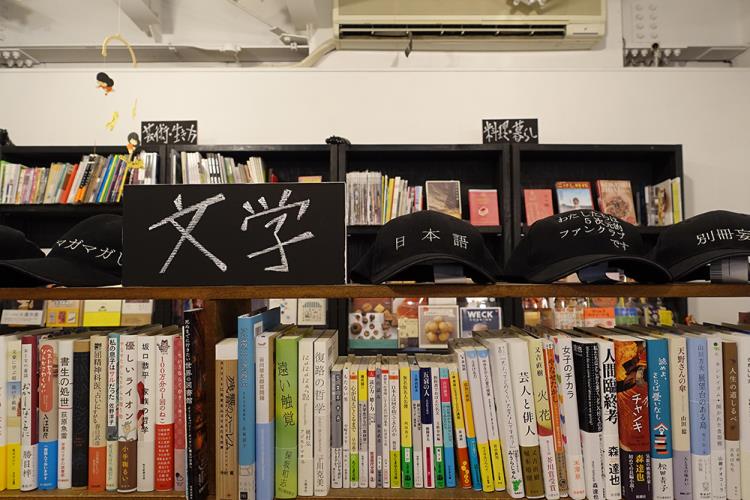Japan-based writer and traveller, specialising in design, lifestyle and travel journalism. Ron previously served as an editor of MING Magazine, ELLE Decoration and CREAM.

Tsutaya Books has opened a branch near Heian Shrine in Kyoto. The bookshop is located in the former Kyoto Kaikan, a building designed by architect Maekawa Kunio. When this new branch first opened its doors, it soon became the talking point on the internet. Located in such a historic area, Tsutaya has a designated area that sells books about art in Kyoto and traditional craft, history and culture of Japan. I am not so excited about it and have no plan to make a visit there yet. It’s probably because there are too many interesting independent bookshops in Kyoto to keep me busy.
One of them I frequented recently is Daiki Bookstore, which is located just off Gojo Dori. Run by an architect, Daiki’s books revolve around the themes of architecture, photography and lifestyle. This tiny L-shaped space is divided into two parts: an office and a bookshop. The part that sells books is cubicle. The selection of books is small yet excellent. There are only two bookcases along the walls, but the books are enough for you to read the whole afternoon. If you are into the history of Japanese architecture and garden design, Daiki is where you should check out.
Another bookshop that I would recommend is Hohohoza at Shirakawa Dori. If you are a book lover and have visited Kyoto before, you may probably have heard of Gake Shobo, a bookshop located near Kyoto University of Art and Design and has the front end of a car poking out through a building as part of the store’s decoration. The bookshop owner Yamashita Kenji is also the owner of Hohohoza. Last year, Yamashita closed Gake Shobo down. He joined forces with his friend Matsumoto Shinya to operate Kotobayonet, and rented the ground floor of the old building where Kotobayonet was located. He combined the two spaces together and renamed it Hohohoza. The ground floor sells new books, while the first floor sells secondhand books and ceramic products, etc.
Yamashita applied the same business model to this new establishment. Hohohoza’s specialty is its rich selection of locally published zines and knick-knacks made by young people. Apart from selling books and stuff, Hohohoza also functions as an independent publishing house. The Day We Started a Coffee Shop, the first book published by Hohohoza, is on display on the bookcase near the main entrance of the bookshop. The book consists of stories about coffee shops in Kyoto, as well as interviews with ladies who want to pursue a better life. Make a visit to Hohohoza, and you will see that it’s a strong reminder of the power of self-publishing in Japan.
Seikosha is a bookshop founded last year by Horibe Atsusi, the former director of Keibunsha. It’s located in a neighbourhood in the district of Kawaramachi Marutamachi. Horibe has a unique business approach for bookshops. When he took the helm of Keibunsha, he declined to follow the conventional procurement process. Refused to rely on distributors, Horibe contacted publishers directly instead. By doing so not only the costs of purchasing books will be lower substantially, the types of books a bookshop gets are significantly more than getting from distributors. This is because distributors usually set aside the best-selling books for chain bookshops, which renders small bookshops difficult to compete with them. Horibe requested all employees took up the role of a buyer and selected books and stuff they wanted to be sold in the bookshop. Now having his own bookshop, Horibe is still ordering books directly from publishers.
Although chain bookshops boast a wider selection of books, they don’t carry the warmth and welcoming ambiance that neighbourhood bookshops do. The future of bookshops in Japan is at risk. The number of bookshops in the whole country has fallen to 13,000, a quarter fewer than ten years ago. Interestingly enough, although bookshops are in decline, independent booksellers are popping up. Maybe what Horibe said is true: backstreet bookshops will survive so long as there is a new way out, and they will continue to support to our community.